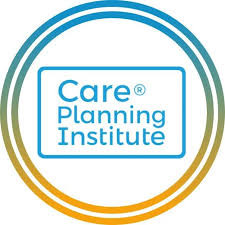1. Utilizes advanced nursing processes for the performance of patient care to assess, plan, intervene, implement, and evaluate patient care to achieve prioritized patient outcomes.
- Perform initial assessment and ongoing needs assessment of the patient and family to identify health risks and needs.
- Provide primary, secondary, and tertiary health care to individuals, families, and groups emphasizing health promotion, disease prevention, early detection, management of health problems, acute and chronic illness, and response to acute and chronic illness.
- Formulate differential diagnosis(es) and develops a comprehensive, multidisciplinary plan of care.
- Prescribe interventions and perform therapeutic measures to ensure the appropriate individualized plan of care is implemented.
- Modify the plan of care, in collaboration with other healthcare team members, to achieve the desired outcomes.
- Participate in health education of patients, families, communities, health care providers and students, through identification of learning needs and/or provision of formal and informal learning.
- Evaluate patient progress toward desired outcomes.
- Demonstrate personal accountability in the delivery of patient care in a competent, professional and compassionate manner.
- Identify and recognize abnormal symptoms/changes in patient condition, established priorities and takes appropriate action.
2. Evaluate the processes and outcomes of patient care through participation in quality improvement efforts to enhance the delivery of excellent, cost effective healthcare.
- Evaluate effectiveness of the plan of care for aggregate populations.
- Analyze appropriateness of resource utilization compared to the level of services required.
- Evaluate cost and quality outcomes of the care provided.
- Utilize the outcome data to enhance the delivery of quality, cost effective health care.
- Coordinate and/or provide formal educational programs.
- Provide informal educational opportunities for health care team members.
3. Accountable and responsible for professional development within nurse practitioner role by seeking educational opportunities to advance knowledge and skills in order to ensure safe and up to date practice within specialty area.
- Formulate short and long term goals based on self-assessment of strengths and areas for improvement.
- Engage in professional activities such as attending professional educational conferences, writing articles for publication, participating in professional organizations and/or participating in research process.
- Participate in and supports evidence based practice as demonstrated by involvement in research activities.
4. Follow policy/procedures/regulatory requirements and perform other work assignments.
- Comply with all departmental and organizational policies and procedures in addition to regulatory requirements (such as OSHA, CMS, Joint Commission, etc.) and participate in corporate/departmental safety and quality activities.
5. Collaborate with Medical Staff, management and other healthcare providers to coordinate appropriate patient care.
- Promote team concept through effective communication regarding patient condition, patient care plan and patient satisfaction with appropriate individuals that are involved in the patient’s care.
- Work effectively with ancillary areas as part of the team approach to patient care.
- Direct patient support team members effectively and appropriately.
- Demonstrate initiative and flexibility in the provision of patient care.
- Inform and involve manager regarding patient care issues in a timely and appropriate manner.
- Collaborate with Social Services and Utilization Management if needed.
- Complete patient and family education.
6. Perform emergency treatment as required.
- Initiate or assist in patient care in an effective and responsive manner as each situation requires.
- Triage each emergency situation appropriately and involves other resources as appropriate.
- Administer and perform emergent care in accordance with the applicable patient population type which may range from newborn to geriatrics.
- Follow emergency policies, procedures and protocols in an effective manner.
7. Perform and maintain documentation.
- Document accurate and ongoing assessment of patient status that reflect interventions, patient responses, patient teaching and status of outcomes.
8. Communicates effectively.
- Communicate and collaborate effectively with other health team members regarding patient condition, plan of care, patient satisfaction needs and recommendations for meeting identified outcomes.
- Identify and recognize abnormal symptoms/changes in patient condition, established priorities, and takes appropriate action.
9. Perform other duties as assigned.





